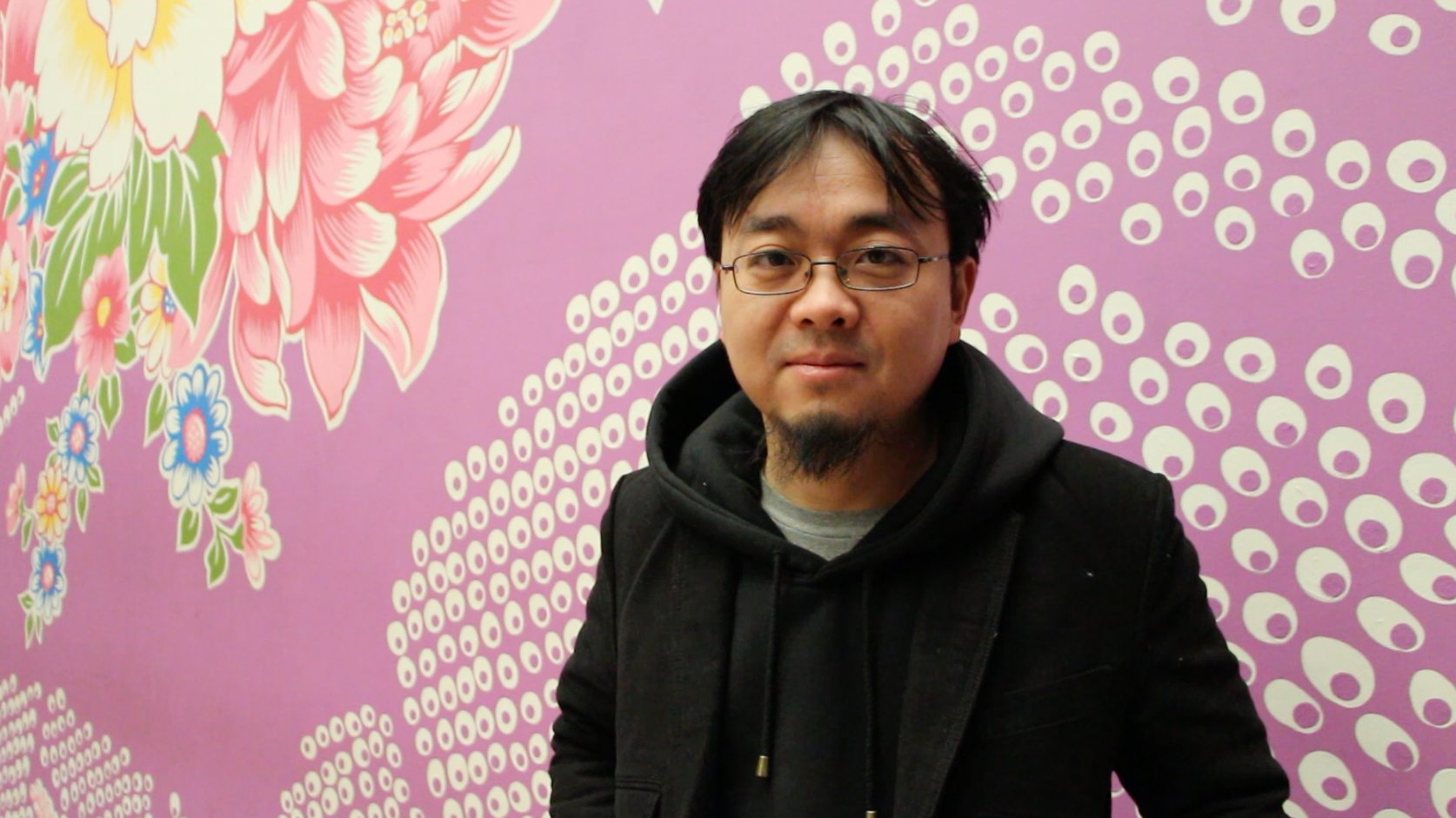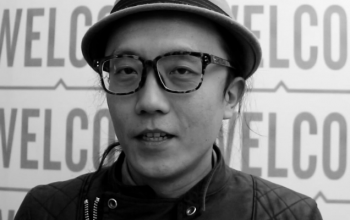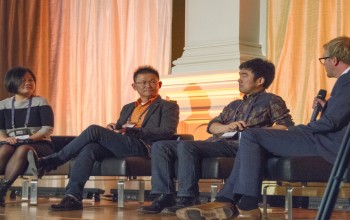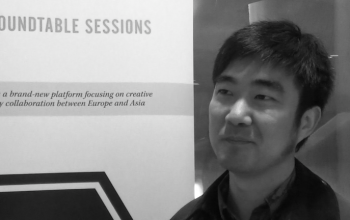Yang Yu is in charge of international projects and booking of international bands for Midi Festival and Midi School of Music. Read on to learn more about Midi Festival, Midi School of Music and the Chinese festival culture through the eyes of Yang Yu.
Hey, who are you and what do you do?
My name is Yang Yu. I work for Midi Festival and Midi School of Music as a Head of International. I take care of international projects and booking of international bands.
Could you tell us about Midi Festival?
A lot of people say that Midi Festival is the first Chinese rock open air festival. We started in 2000 from the Midi Music School’s campus and moved to public park in 2004. This has been considered as the start of this new music festival culture in China.
The festival has got quite big. We started in Beijing but after several years we have moved out and now we’re doing events several times a year in different places. Last year we had five events in Beijing, Shanghai and Shenzhen. The majority of the bands are Chinese: Chinese rock, indie and a lot of folk musicians. We have a bit of everything. Midi is still called rock festival because when rock started in China, there was this idea of rock, not really the exact music style. Independent, alternative, non-pop…we include a lot of things in the big family of rock.
Midi festival has become quite iconic. Bands and fans are traveling around the country just to be part of the big party. That’s why they are called rock kids. 10 to 20 percent of our artists are internationals: foreigners living in China or foreign bands touring around. Sometimes we just invite bands to visit our festival. Midi has been a good platform for the new bands to get started. I guess it’s fair to say that Midi Festival has become rock institution in China.
How would you say that Midi Festival has influenced on Chinese music industry?
Midi Festival has definitely influenced on the live music sector. Before the festival, the approach of doing open air events was quite different. A lot of events involved pop stars and TV productions which is a quite different thing compared to a proper music festival where you need a lot of gears and good sound for an audience – not only for the TV production. The whole approach is different. I think we kicked something started in China.
Do you do cooperation with other festivals in China or internationally?
The scene is very small so Chinese festival people are all friends with each other. Internationally we have also a lot of cooperation, for example with Hohaiyan Rock Festival in Taiwan and Wacken Open Air festival in Germany. We have an exchange program for the bands. More cooperation opportunities is developing in Korea and we would like to do more cooperation with France and Norway.
There are a lot of cooperation going on behalf of the festivals but also behalf of the bands with mutual benefits. Possibly we can help the bands to get out to see the rest of the world and gain more experience, and hopefully to create an oversea market.
You’ve been organizing festivals for thirteen years in China. How has things developed in the festival industry during these years?
I think the whole new festival culture with rock festival and open air festivals has really set something on move in the live music sector. There are now more bands touring and there are better equipments because of the need. Nowadays 100 to 200 festivals are being organized in China per year. Everyone are demanding on gears and equipments. That has really helped the industry develop a lot. Bands get to play on bigger stations, they get known outside of their own territory. That’s the change and things have changed very fast! In 2007 which is not even that long ago, there was only a few festivals that were known. Now you totally get lost where and when was all these different festivals because each month there might be several festivals. People wants to go to different places. Definitely that was the change, the boost of it all.
Things are improving. It’s for example easier to get back line rental for the bands. I remember that only two-three years ago we were looking for a specific old-style guitar XX by Marshall. We found out that there was only six guitars available and one of them was broken. Eventually we got six pieces that we needed, half of them were borrowed from private collectors. The renting companies didn’t kept these kinds of equipments because they are not standard. This happened not even that long ago but you can already say that nowadays it’s much easier to get equipments like this.
The government is also changing their regulations and their policy in order to make everything easier and for allowing more interesting cultural events to happen. It’s easier to get all the paper work done and to apply for things. It’s all taking a new shape but of course things still needs to be developed. If you compare the production quality in China, no matter which festival, it’s still not the same standard as you would see for example in Europe: setting up the stage, the size of the stage… a lot of things are lacking. There are lot of festivals out there where each band will have their own stuff based on the rider. That’s impossible in China! We even tried that but couldn’t supply because of the cost, the knowledge, the crew and everything. We don’t have that much but we are getting there. I don’t know when but everything is developing quite fast. Me and my colleagues are having quite hard time on keeping ourselves updated and trying new things just for the improvement.
A lot of festivals are moving towards Pop
How do you see your and other festivals’ future in China?
Midi started out at a time when there was actually no market for that kinds of festivals. We rammed down the wall with a bunch of likewise people to start this music festival industry. I think we will keep on doing the same things, no matter how the music market is changing.
I can see that there is a slight change in tendency. There are a lot of festivals moving towards pop, especially Chinese pop again. Chinese pop has been and still is the biggest thing in China, nothing else can be compared to it. However there are people who want to do more proper rock and indie pop festivals. So there are different directions where the festival organizers are moving to.
The mass media, like TV is interested in being involved and that is pushing everything back to the Chinese pop festival kind of a thing. There are lot of Hong Kong companies and Taiwanese companies who have been here for a long time and instead of doing this pop concert they are interested in being largely involved in this behind the curtain production.
Modern Sky, as one of the biggest key players in the industry has started this indoor festival thing which has been done by rather small companies before. I think this is also a movement. We also had the same idea a long time ago but we haven’t done that yet. I think that’s a good move and a good alternative. It doesn’t make sense that everyone does pretty much the same thing – more or less the same bands, the same approach, the same size, the same time of the year. We need to have more innovations that are suitable for China for to keep the industry thriving. It has happened a lot before that different things suddenly boom, everyone jumps in to the business, competition is on and then it gets uninteresting. And then everyone disappears out of the sudden to make something new. I hope this doesn’t happen to the Chinese music festivals.
Do you think that networking events are important in the creative industries?
Yeah sure! Both us and Modern Sky are quite famous in the live music industry. I receive something like 30 emails per day. Different bands applying for the festival or companies looking for a partner. In the end of the day you have a lot of names in your head but you can’t really remember them. When you go to a convention like EARS, you get to actually meet the people that you have been writing novels of emails with.
When you come to the event, you notice that a lot of people actually know each other already. It’s a good opportunity for everybody to meet again at once. This is convenient because everybody are busy and many people travels a lot. Events offers opportunity to meet people and widen up your possibilities. When you get introduced to some project in face to face, you’ll have a deeper impression of it and you get to immediately discuss about the main issues. You just sit down for a coffee and within twenty minutes you have the whole concept figured out. Connecting and socializing is really really important.







